Sustainability Trends in America, 2022 Consumer Insights Report
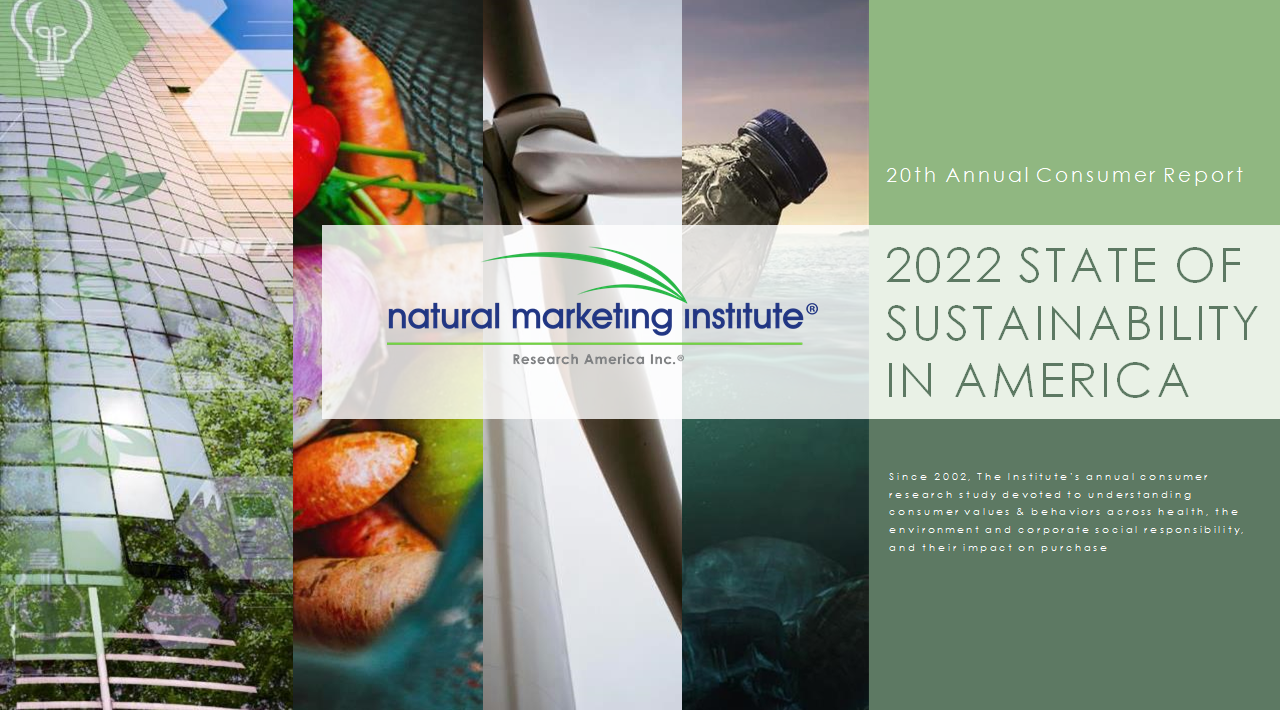
135 pages of the Institute’s research, study supported, providing current consumer insights with data and analysis, including charts, graphs, and illustrations!
Site License: Includes PDF, PPT with access to charts and site rights for internal network usage across one company BRAND/location.
Price: $15,000 Order Report
Sustainability Trends: 20 Years of Marketplace Insights
The 2022 Sustainability Consumer Insights Report measures and describes the marketplace for sustainable products and services, the consumers who use them, consumers’ expectations of corporate behavior, and attitudes toward environmental and social issues. In addition, it uncovers consumer motivations and the challenges they encounter in their pursuit to become increasingly aligned with a more sustainable lifestyle.
While some challenges may exist regarding the relevance of sustainability in a world which appears to have been turned on its end, many of the latest findings provide evidence that sustainable trends and attitudes have taken on a higher level of acceleration and importance in consumers’ mindset.
In addition, there appears to be evidence that the COVID-19 pandemic may have ignited a stronger conviction towards environmental protection and sustainable behaviors as the fragility and interconnectedness of the human and planetary condition has been made more apparent than ever.
In fact, our findings reveal consumers are clearly showing more sophistication within the realm of sustainability – with greater understanding of its breadth, depth, and implications, and they pick the elements that mean the most to them. In this year’s research we are finding a heightened awareness and concern over the health of the planet which appears to be causing shifts in consumer behaviors. Instead of adopting environmentally-friendly behaviors for more self-directed and personal benefits, consumers are looking outward to the environment around them and realizing they have to take a bigger part in fixing the ills that are disrupting planetary health.
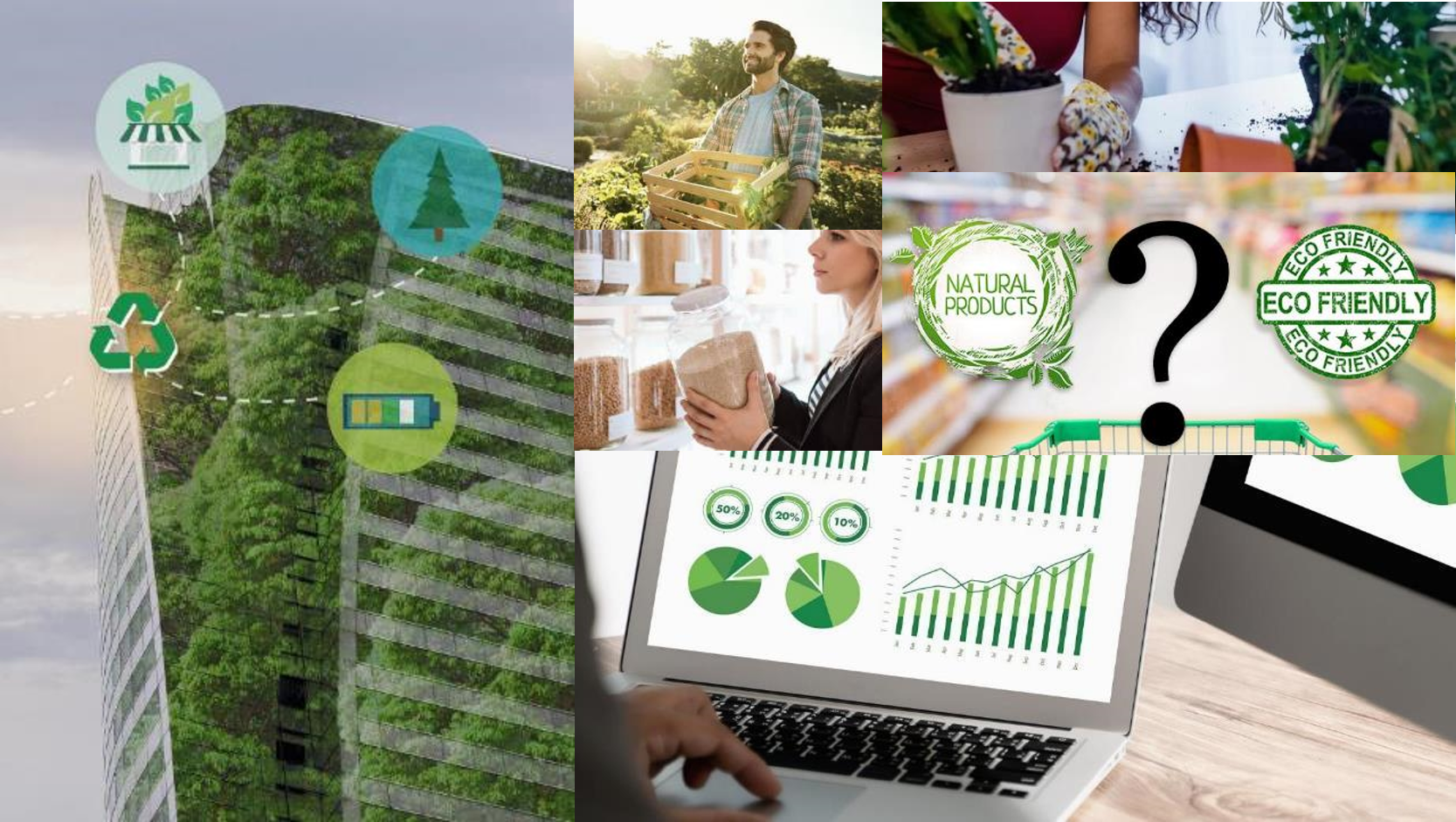
Table of Contents
U.S. Sustainability Trends Consumer Database Overview
Other Natural Marketing Institute Databases Used in Report
Summary Overview
The Institute's Sustainability Segmentation
Sustainability Segmentation Model Methodology
Levels of Environmental and Sustainable Engagement
Segmentation Overview
LOHAS Consumer as Environmental Steward
LOHAS Mainstreaming Attitudes
Dual Positioning of Personal and Planetary Health
LOHAS Aspirational Attitudes
Importance of Company's Mindfulness
Leaders and Followers Profile
Differences across Leaders and Followers
Changing Segment Composition
The LOHAS Consumer Profile
The NATURALITES Consumer Profile
The DRIFTERS Consumer Profile
The CONVENTIONALS Consumer Profile
The UNCONCERNEDS Consumer Profile
Demographic Summary Across Segments
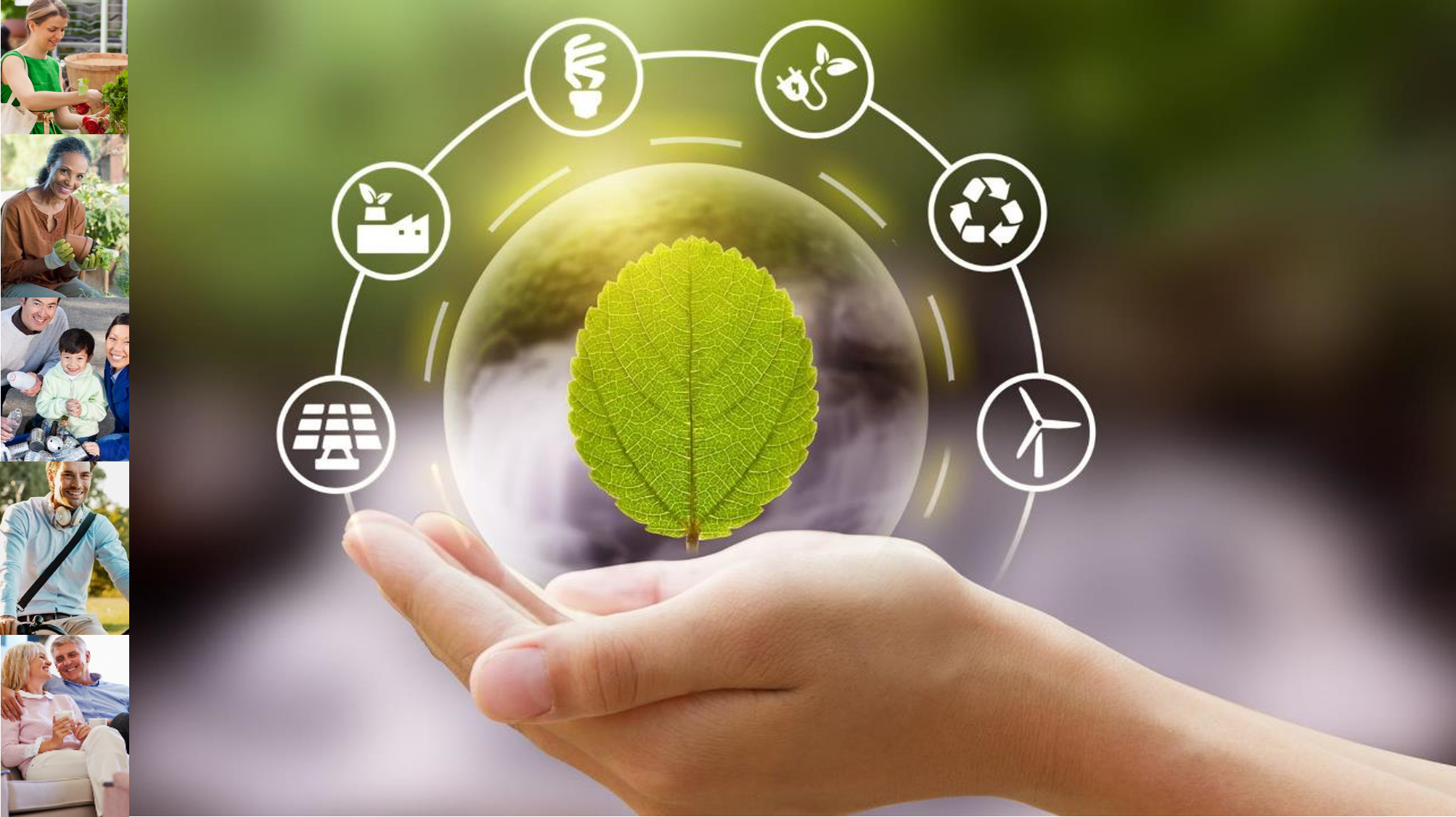
Trends in Consumer Engagement in Environment and Social Sustainability
Personal Responsibility for the Environment
Effect of COVID-19 on Sustainability Orientation
Level of Living "Green"
Willingness to Sacrifice for Environment
Lessening Personal Impact
Participation in Sustainable Behaviors
Growth in Participation in Sustainable Behaviors
Dual Benefits of Sustainable Behaviors
"Loftier" Benefits of Sustainable Behaviors
Participation in Sustainable Behaviors to Assimilate
Consternation Regarding Environmental Involvement
Concerns Regarding Environmental Issues
Concerns Regarding Social Issues
Concerns Regarding Food Waste
Concerns Regarding Hunger and Undernourishment
Concerns Regarding Race and Immigration Policies Concerns Regarding Fair Labor and Workers' Rights
Consumers' Willingness to Provide Assistance to Others
Donating Behavior
Desire to Create Change for the Better
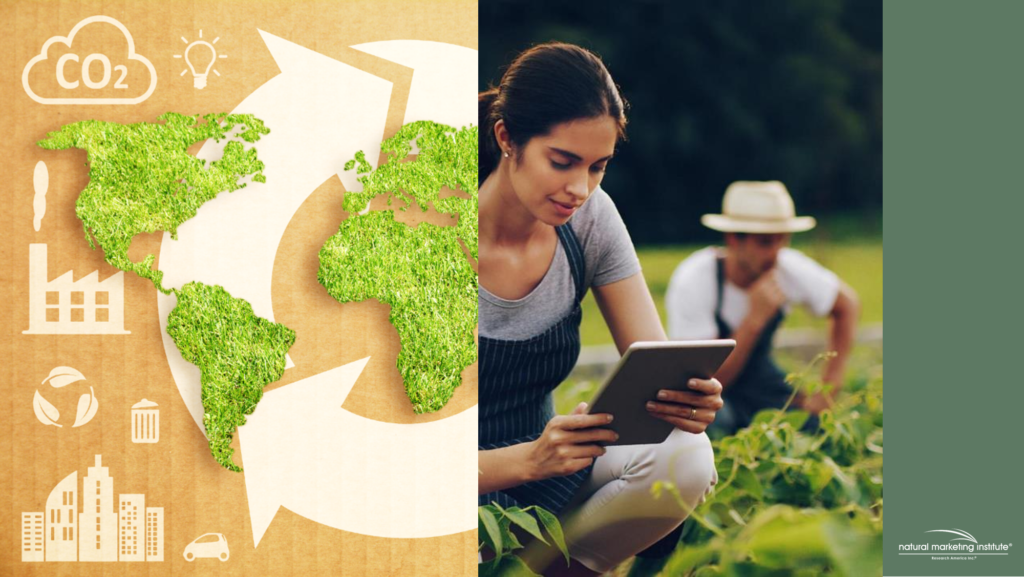
Consumer Outlook on the Status of Planetary Health
Resource Depletion Concerns
Concern Over Lack of Biodiversity
Interest in Company Practices Regarding Biodiversity
Global Warming Concerns
Interest in Company Practices Regarding Global Warming
Positive Outcomes During Lockdown
Connection of Toxins in Soils and Increased Disease Rates
Concern for Sustainable and Regenerative Agriculture
Connection of Planetary and Personal Health
Concern Regarding Plastic in Oceans and Environment
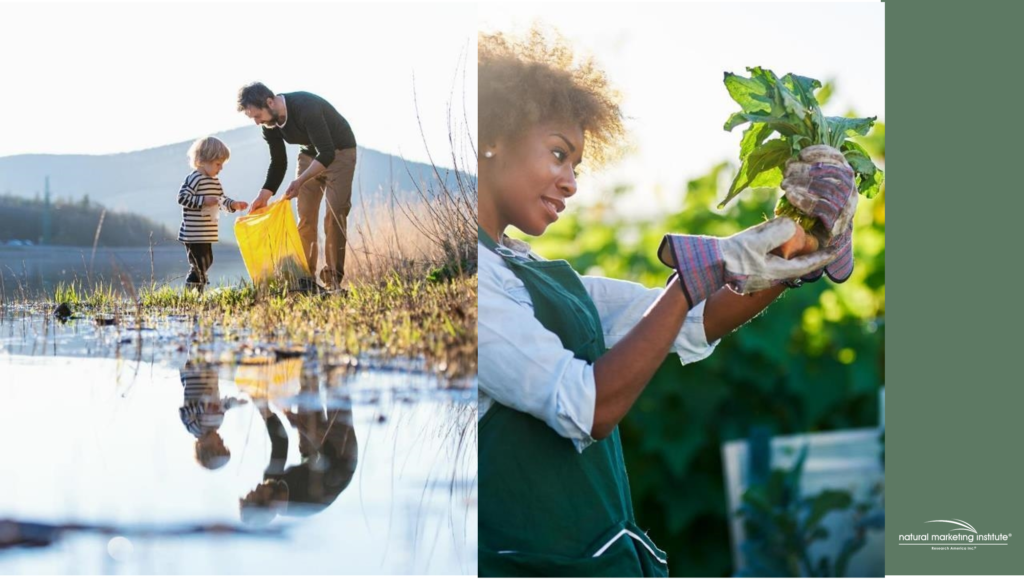
Waste, Recycling and the Plastic Problem
Living in a Wasteful Society
Preference for Products Manufactured in a Sustainable Manner
Impact of a Circular Economy
Increased Wastefulness Due to COVID-19 Impact
Impact of Overpackaging
Preference for Glass, Cans and Cardboard over Plastic
Likelihood to Shop Stores Which Reduce Plastic
Preference for Refillable Economy
Positive and Negative Attitudes Regarding Refillable Economy
Recycling Frequency of Specific Materials
Growth in Recycling Across Specific Materials
Skepticism Regarding Curbside Recycling
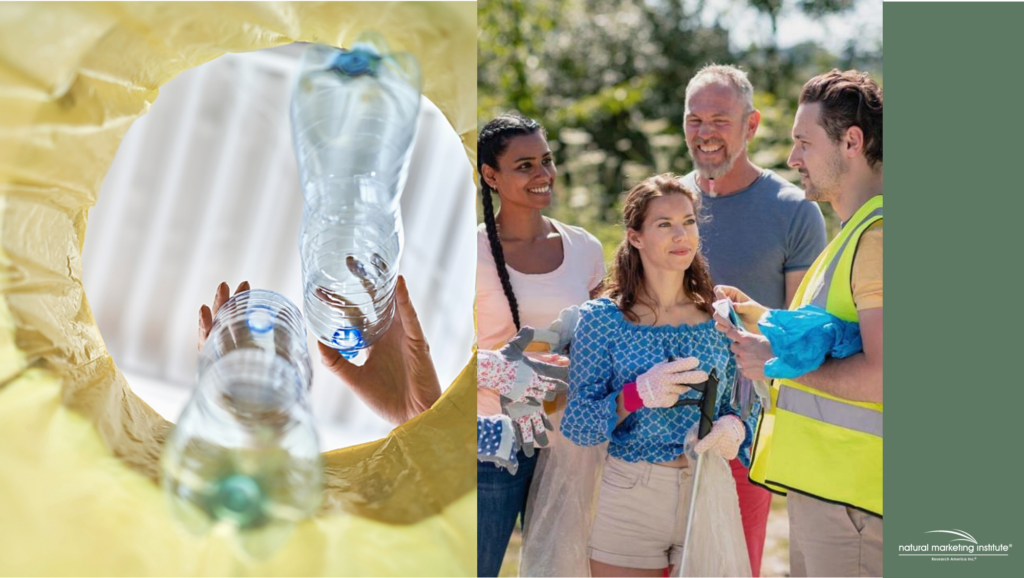
Impact of Sustainability on Product Purchase
E-Friendly and Sustainable Positioning as Drivers of Product Purchase
Stage to Reduce Environmental Impact
Concern Regarding Chemicals in Household Products
Frequency of Harmful Chemical Monitoring
Interest in Natural and E-Friendly Versions of Categories
Use of Conventional, Natural, Organic Versions of Categories
Use of Conventional, Natural, Organic Versions of Personal Care
Household Penetration of Natural and Organic Personal Care
Importance of Personal Care Attributes and Growth
Use of Conventional, Natural, Organic Versions of HH Cleaning Across Generations Household Penetration of Natural and Organic Household Cleaning
Importance of Household Cleaning Attributes and Growth
Barriers to Purchase of Natural or Green Household Products
Use of Natural and Organic Foods/Beverages
Use of Dairy Milk and Organic Dairy Milk and Growth in Usage
Importance of Food/Beverage Attributes and Growth
Use of Plant-Based Food/Beverages
Purchase of Plant-Based Household Cleaning and Personal Care Products
Barriers to Purchase of Environmentally-Friendly Products and Services
Impact of Price on Product Purchase

Beyond Products-What Does CSR Mean to Consumers
Importance of Company's Environmental Mindfulness
Increased Commitment to Companies with E-Friendly and Sustainable Initiatives
Perceived Leader in Environmental Protection and Who Should Be Doing More
Retailers and Corporate Need to Do More to Protect the Environment
Interest in Companies' Environmental Initiatives
Concern for Socially Responsible Business
Interest in Companies' Social Initiatives
Interest in Companies' Social Initiatives by Ethnicity
Racial Equality and Social Justice Trends
Impact of Company's Cause Support
Alignment of Personal Values with Product Purchase
Impact of Local Support vs. Global Support
Greenwashing Skepticism Prompts Searching Behavior Actions Taken to Determine Company Initiatives
Impact of a Company's Mindfulness on Trial, Loyalty
Boycotting Behavior
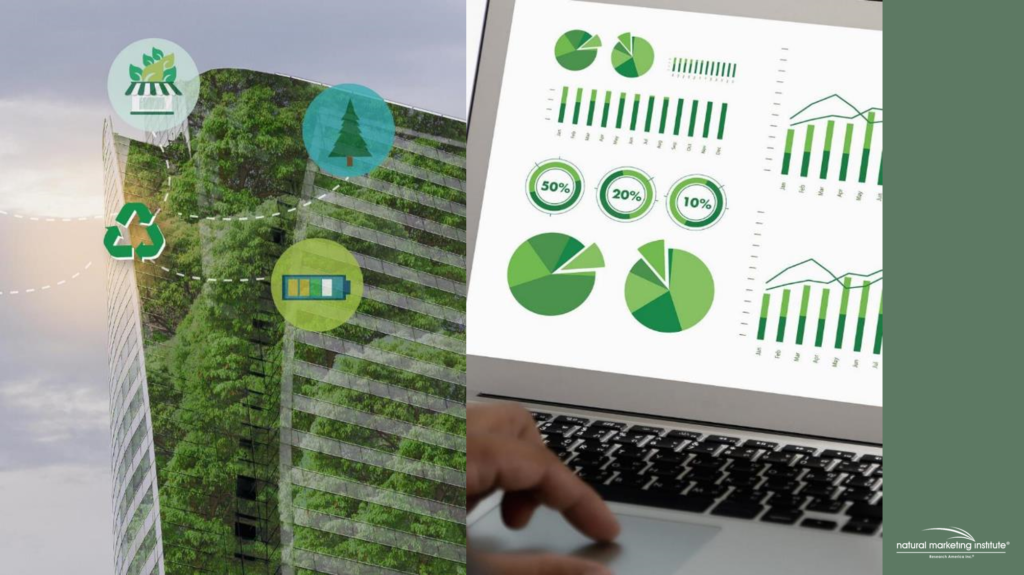
Sources of Influence and Points of Connection
Sources of Influence Prompting Purchase of More Sustainable Products
Social Media Influence across Healthy & Natural, Supplements and Sustainable Products
Impact of a Seal or Certification Mark on Purchase
Recognition and Understanding of Certifications
Impact of Certifications on Likelihood to Purchase
Seal and Certification Confusion
Understanding of USDA Organic Certification vs. Regenerative Organic Certification
Trustworthiness of Certifications
Influencing Others Regarding Environmentally-Friendly Purchase
Early Adoption of Environmentally-Friendly Products
Desire for More Information about Environmental Protection
Shopping Patterns
Shopping Patterns
Channel Shopping Across Generations
Online Grocery Shopping
Online Research and Mobile Device Grocery Shopping
Growth in Channel Shopping Across Generations
Sustainable Initiatives Which Prompt Increased Store Shopping
Sustainable Initiatives Which Prompt Increased Store Shopping Across Retail Shoppers
Importance of Clean, Pure Product Merchandising
Category Shopping Across Retailers
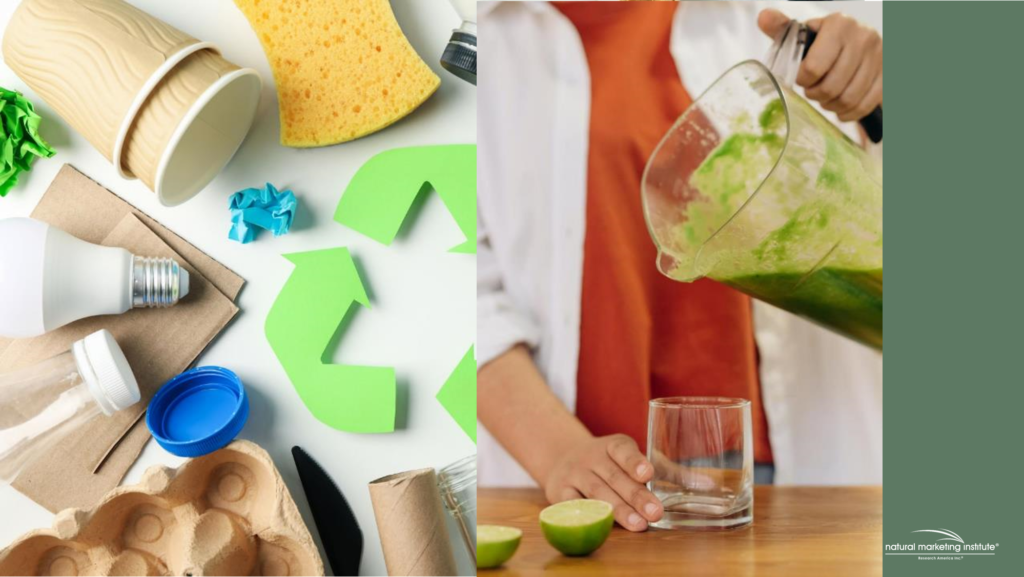
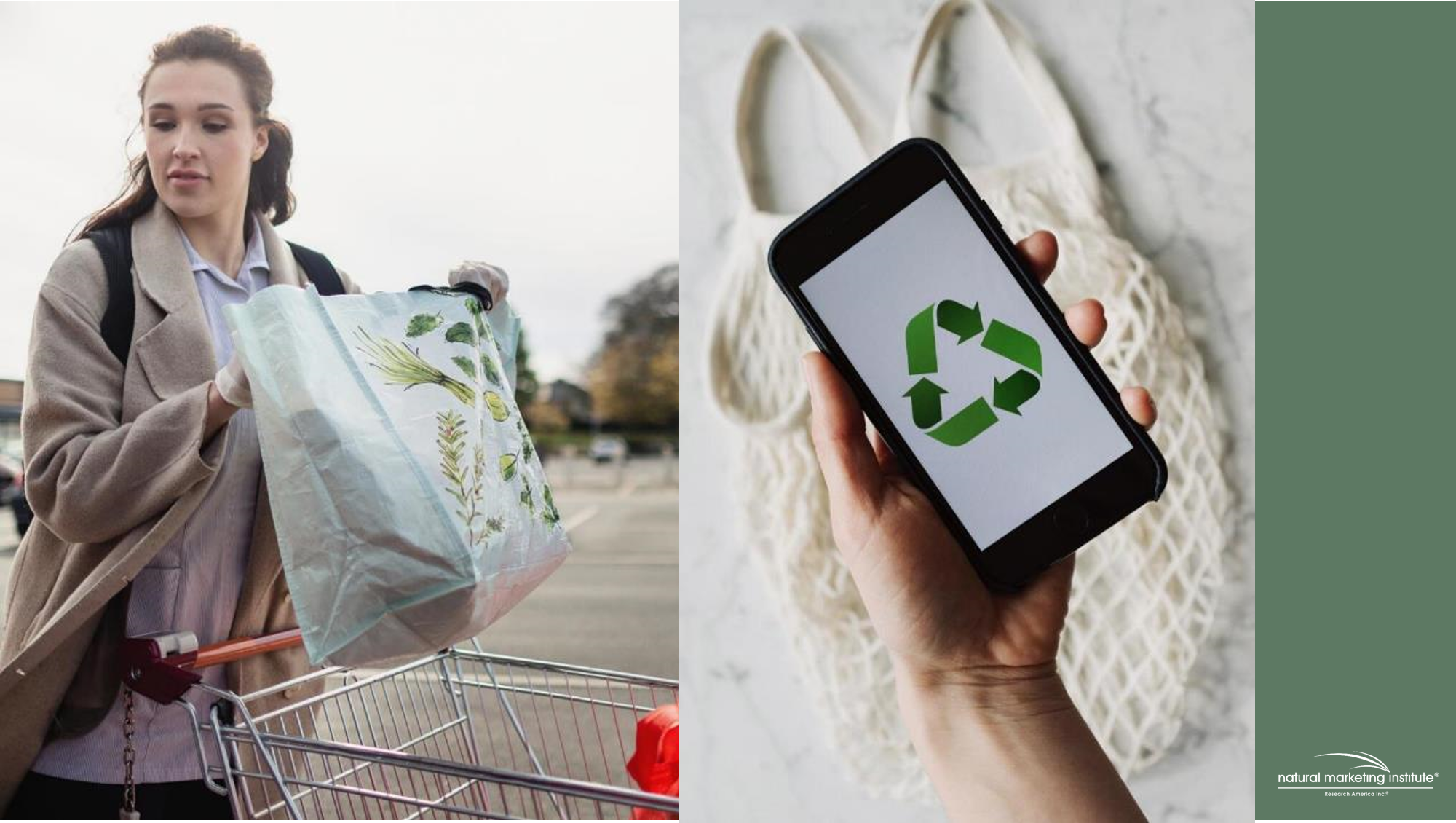
The Institute's Sustainability Segmentation
Consumer segments in the general population exhibit various shades of ‘green’ based on their levels of environmental and sustainable engagement
- While some consumers have ‘deep green’ consciousness, there are varying levels among consumers within the American population.
- The consumer segment within the population which is considered the ‘greenest’ segment is the LOHAS (Lifestyles Of Health And Sustainability) consumer who is integral in helping to drive sustainability into the mainstream.
- Other segments within the population also hold ‘green’ attitudes and participate in ‘green’ behaviors but their motivations are differentiated.
- By understanding the consumer segment’s orientation, organizations are better equipped to determine how to target the most optimal segment with the most relevant marketing strategies.
Sustainability Segmentation Model Methodology

Development of the Institute’s unique and proprietary segmentation model among General Population 18+ Adults began with evaluating over 170 different attitudinal and behavioral variables, later narrowed to approximately 15. A k-means clustering method was used. Cluster centers were defined as dense regions in the multivariate space based on the k-means segmentation of the behavioral and attitudinal variables from the Institute’s Sustainability Trends Database survey.
This segmentation can be used to identify and predict segment membership as part of a quantitative extrapolative analysis of future consumer behavior.
Each of the five unique segments is mutually exclusive and has the maximum differentiation between consumer groups and the maximum homogeneity within each consumer group. The predictive accuracy is high at 86%.
The segmentation has been overlaid on third-party data sets such as NielsenIQ’s Homescan and can be licensed through the Institute in custom/primary qualitative or quantitative research.
U.S. Sustainability Consumer Insights Database® (SCTD) Overview
Scope:
- Quantifies the size of the consumer market for environmentally and socially responsible products and services
- Measures the importance of environmental and societal issues as well as corporate social responsibility
- Explores environmentally conscious behavior
- Determines consumer usage of sustainable products and services and quantifies purchase criteria
- Annual tracking study in U.S. since 2002 and globally since 2005
Report Methodology:
- 4,071 U.S. adults in 2021, nationally projectable to the U.S. adult population and accurate at the 95% confidence level to +/- 1.2%
- Conducted online
- Fielded October 2021
- Report released January 2022
Natural Marketing Institute Databases:
- U.S. sustainability trends since 2002 and Globally since 2005
- Conducted in 23 countries; 150,000+ Global consumers interviewed
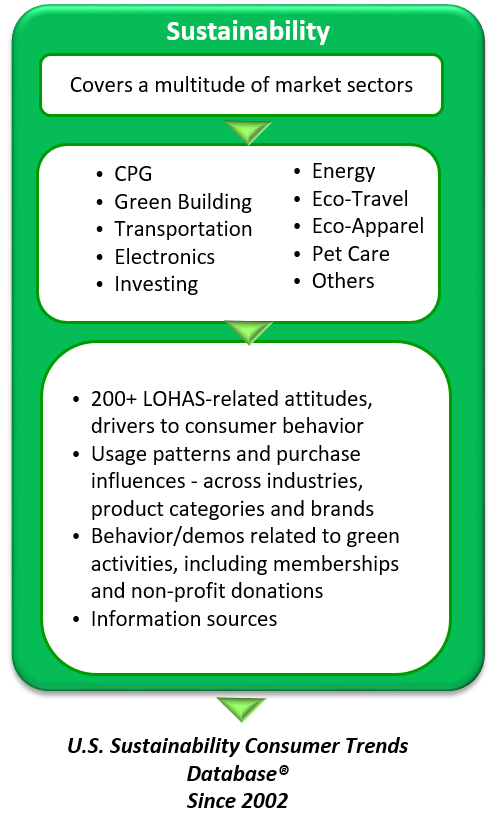

Kindly Contact Us for more information on our 2022 Sustainability Trends and Insights Consumer Report
